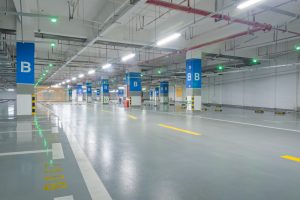The Global Demand for AC Is Increasing, Not Because of Temperatures, But Because of Financial Growth

 It seems like a vicious cycle: because the earth is getting warmer, more people are turning up their air conditioners; because more energy is needed to fuel air conditioning units, thus giving off more greenhouse gases that harm the ozone layer, the earth continues to heat up even more.
It seems like a vicious cycle: because the earth is getting warmer, more people are turning up their air conditioners; because more energy is needed to fuel air conditioning units, thus giving off more greenhouse gases that harm the ozone layer, the earth continues to heat up even more.
According to a new study recently published in the Proceedings of the National Academy of Sciences, two researchers from the University of California and the National Bureau of Economic Research have found that more people are starting to buy air conditioners, more people are turning on the AC more often, and it’s likely that these trends will continue.
As the Washington Post explains, Americans are already heavily reliant on air conditioning; it’s estimated that 90% of homes have AC units today, and the cost of cooling homes makes up 5% of total energy costs in the U.S.
But in a handful of other countries, sales of air conditioning units have skyrocketed within the past decade.
The Post notes that increased AC demand isn’t necessarily a direct result of a warmer planet — although temperature is certainly a contributing factor. Instead, the main driving force behind air conditioning usage is a result of increased wealth, especially in densely-populated countries with growing middle classes.
The Verge notes that the research study specifically referenced Mexico, Brazil, and China as countries that have already seen a huge increase in the air conditioning industry; in China, air conditioning unit sales have doubled within the past five years, and the total amount of AC units sold in China in 2013 was eight times the total units sold in the U.S.
In countries like Indonesia, India, and the Philippines, experts predict that the demand for air conditioning and air conditioner repair will start increasing in the next few years and will soon surpass AC energy consumption in the U.S.
Ultimately, researchers predict, the amount of energy used to cool residential buildings will increase by 83% by the end of the century — and this could become a major problem unless there is also a strong focus on making sure that new HVAC units are as eco-friendly as possible.
“We encourage our customers to upgrade/replace existing units with higher efficiency systems as a way to help both the environment and their utility costs,” says Terri Boennighausen, Comfort Experts Inc.







